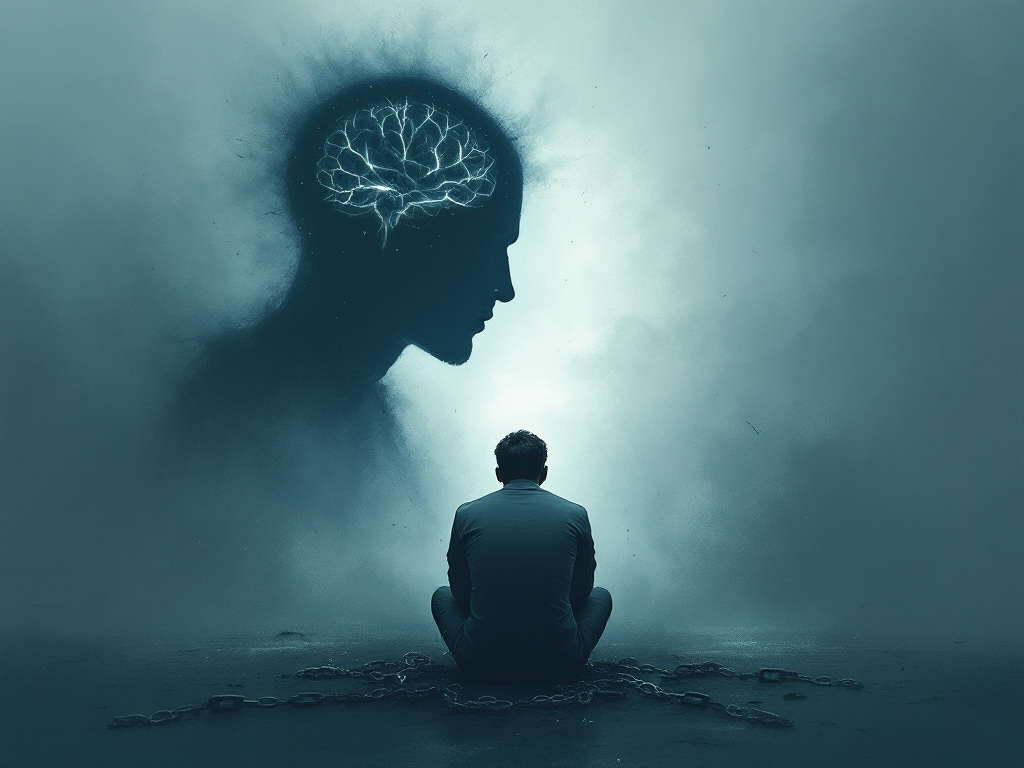When you notice changes in your mood, focus or relationships, you may wonder if substance use is to blame. When you explore how addiction affects mental health, you’re taking an important first step toward understanding your experience or helping someone you care about. Addiction and mental health are deeply intertwined, especially for men who often face unique pressures—from workplace expectations to family responsibilities—that can intensify both substance use and psychological distress.
This article guides you through the early warning signs, the underlying brain changes, the prevalence of co-occurring disorders, the role of stigma and isolation, and the recovery options available. You’ll gain insight, backed by data and expert research, to help you recognize potential issues and consider the next steps toward healing.
Recognize early warning signs
Addiction often begins subtly, with small shifts in mood or behavior that can feel easy to dismiss. Early awareness helps you or a loved one catch problems before they escalate.
Mood and behavior shifts
- Persistent irritability, anxiety or depression
- Heightened stress or panic in social or work settings
- Unexplained mood swings that feel out of character
Relationship and work issues
- Increasing conflicts with family or colleagues [1]
- Withdrawal from activities you once enjoyed
- Declining performance or frequent absences at work
Physical and cognitive indicators
- Trouble concentrating or remembering simple tasks
- Changes in sleep patterns, including insomnia or excessive fatigue
- Noticeable tolerance, needing more of the substance to feel its effects
If you observe several of these signs in yourself or someone close, you might want to explore how to know if someone needs help for substance abuse.
Examine brain changes
Addiction is now understood as a brain disease, not a moral failing. Substances hijack neural circuits that regulate reward, motivation and self-control.
Altered reward circuits
When you use opioids, cocaine or nicotine, dopamine floods your brain’s reward pathway—up to ten times more than natural rewards. Over time, these surges desensitize receptors, making everyday pleasures feel dull and driving you to seek more of the substance [2].
Impact on decision making
Changes in the prefrontal cortex undermine impulse control and judgment. You may find it harder to weigh risks or delay gratification, even when you know the consequences.
Long-term neurological effects
Chronic use can shrink areas of the brain responsible for learning, memory and emotional regulation. These alterations contribute to compulsive substance seeking and can exacerbate anxiety or depression. For a deeper look at these processes, see how addiction changes the brain.
Identify co-occurring disorders
Many men with substance use issues also experience mental health conditions, creating a cycle that can be hard to break without integrated care.
Common mental health conditions
- Depression and anxiety disorders: About 43 percent of people in treatment for prescription painkiller misuse report symptoms of depression or anxiety [3].
- Serious mental illness (SMI): Roughly one in four adults with SMI also meets criteria for a substance use disorder [4].
Self-medicating and vulnerability
You might use substances to cope with trauma, stress or painful emotions. This pattern, known as self-medicating, can provide temporary relief but often deepens both addiction and the underlying disorder.
Benefits of integrated treatment
Integrated care—where mental health and addiction services are coordinated—leads to better outcomes. Programs following SAMHSA’s “no wrong door” policy ensure you’re screened for both types of conditions, no matter where you enter treatment [5]. To learn more, visit understanding co-occurring mental health and substance abuse.
Tackle stigma and isolation
Stigma remains a powerful barrier, especially for men taught to “tough it out.” Challenging misconceptions can open the door to support and healing.
Role of stigma in treatment
Negative labels like “addict” or “junkie” feed the false belief that substance use is a choice rather than a chronic brain disease. These attitudes discourage you from seeking help and can even influence how clinicians treat you [6].
Language and perception
Using person-first language—such as “person with a substance use disorder”—reduces shame and promotes dignity. You’ll find more on respectful terminology in stigma around male addiction.
Building understanding and support
- Share accurate information with friends and family
- Join peer groups where you can speak openly without judgment
- Seek therapy or counseling to address shame and isolation
By replacing blame with compassion, you create an environment where recovery feels possible.
Explore recovery options
Once you recognize a problem and understand its roots, the next step is to explore treatment pathways that match your unique needs.
Professional assessment and screening
A qualified clinician will evaluate your substance use, mental health history and personal circumstances. This may include medical exams, psychological tests and discussions about your goals. If you’re wondering what to ask, review questions to ask when considering rehab.
Evidence-based therapies
- Medication assisted treatment (MAT) for opioid use disorder
- Cognitive behavioral therapy to challenge negative thought patterns
- Trauma-informed programs to address past wounds
- Group therapy for peer support [7]
Many men benefit from programs designed specifically for them—learn more at how gender-specific treatment helps recovery.
Support networks and aftercare
Recovery doesn’t end when formal treatment does. Building a strong support network—family, friends, sponsors and sober living communities—helps you maintain progress and navigate challenges [8].
First steps after treatment
After you leave a program, structure your days with healthy routines, set recovery goals and stay connected to professional support [9]. Regular check-ins and relapse prevention strategies can keep you on track for lasting change.
Addiction’s impact on mental health can feel overwhelming, but understanding the signs, brain changes, co-occurring disorders and stigma is the foundation for recovery. Whether you’re seeking help for yourself or supporting someone you care about, taking these early steps brings you closer to a healthier, more balanced life. If you’re ready to explore treatment in depth, reach out to a qualified professional and consider the resources above to guide your journey.





